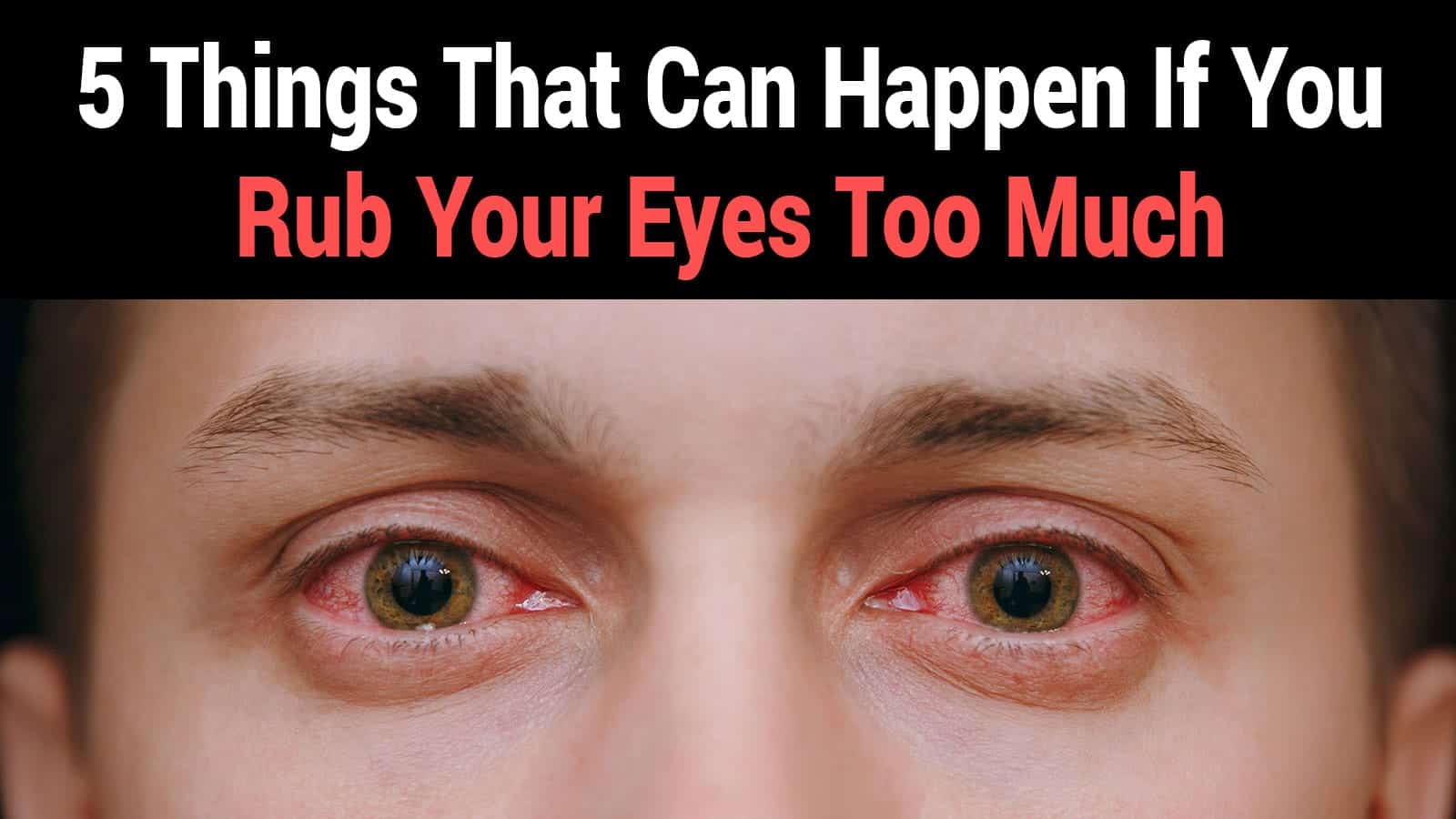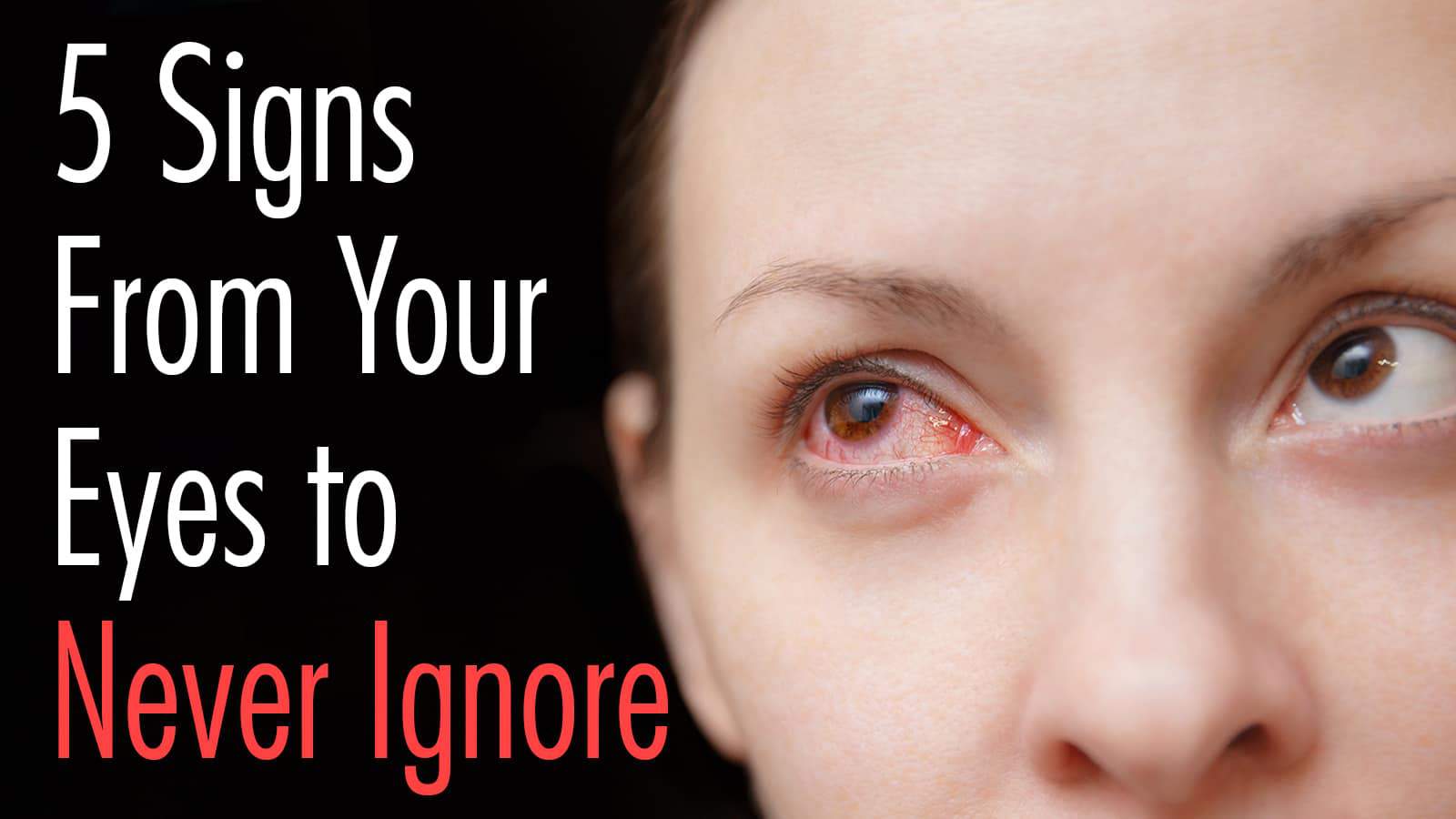You were probably told as a child that you should never rub your eyes, yet you know everyone does it sometimes. Some people like to rub their eyes because they feel itchy. Others do it since it removes and relieves the eyes of irritants like dust.
Rubbing may also be relaxing for some people because the nerves on the eyeballs are stimulated when lightly pressed. The rubbing action also aids in the lubrication and flow of tears, especially for dry and tired eyes.
You might wonder — what’s the worst that can happen when you rub your eyes? Apparently, there are a lot of health concerns when you do this excessively. Here are some things that can happen if you rub your eyes too much.
Here Are 5 Things That Can Happen If You Rub Your Eyes Too Much
“Your hands are a petri dish full of bacteria. When you rub your eyes, it may feel good for that moment, but you are transferring unwanted bacteria and exerting pressure into a sensitive and vulnerable area.” – Dr. Sherry Ross
1. You’ll infect your eyes with bacteria from your hands
Do you know that your hands are full of bacteria? It’s the reason experts always say you have to wash your hands regularly to keep them clean. So, while it might feel good to rub your tired eyes, you’re actually transferring bacteria to a pair of sensitive and vulnerable organs.
If your hands are too dirty, you can risk infecting your eyes and trigger an inflammation called conjunctivitis or pinkeye, according to the American Optometric Association.
- Though a pinkeye is not that serious and won’t damage your vision, it can get uncomfortable. It is also highly contagious.
- The strain may appear on one eye first and cause you to tear up and have watery discharge.
- But the next day, your other eye will also get inflamed and the lymph nodes under your jawbone may also swell.
- Your eyes could also itch, burn, and grow sensitive to light if you have conjunctivitis.
- You may experience some pain, especially if you look at something bright.
- As a result, you won’t be able to work and function well since you can’t open your eyes properly.
Treating pinkeye will depend on the type of virus, bacteria, germs, or irritants causing the inflammation. In most cases, people do nothing but let the infection take its natural course.
Usually, pinkeye may last for a week if the infection is viral. You might need to treat the condition with antibiotics if it’s a bacterial infection. Fortunately, there are various affordable options for eye drops, ointments, and medications for conjunctivitis. You might also need to take an antihistamine if the pinkeye is because of an allergic reaction.
So, it’s very important to get yourself checked to help narrow down what’s really causing the infection. In short, however, simply avoid rubbing your eyes because the risk of infection is always present. If you can’t help it, make sure that your hands are clean.
2. You could damage your cornea
You’ll risk damaging your cornea if you rub your eyes too much. Your cornea is the dome-shaped protection in the front of your eyes which controls the light and enables you to see the world with clear vision. It’s the layer that shields the iris in the middle of your eyes.
When you rub your eyes too much, you could suffer from corneal abrasion. This problem might not have any symptoms in the beginning. But you’ll feel like something is in your eyes, which prompts you to scratch it even more to bring relief.
You’ll need to see an ophthalmologist or go to a hospital’s emergency unit if you experience the following because it’s likely that you’ve damaged your cornea:
- It feels like there’s sand in your eyes.
- Your eyes hurt when under direct light.
- Your eyes are painful, especially when you try to open and close it.
- You experience red and teary eyes.
- Your vision becomes blurry.
A minor corneal abrasion may take days to heal. All that rubbing and pressure can easily tear the cornea because it’s made up thin collagen fibers. If these fibers weaken and break up, the cornea bulges and develops as a condition called keratoconus.
It might take months for the swelling to subside if you have keratoconus. The condition will also make it harder for your eyes to focus so you could experience blurred vision and might need to wear eyeglasses or contact lenses.
People with keratoconus are often diagnosed with astigmatism or nearsightedness (myopia). In the United States, at least 42 percent of individuals from the ages of 12 to 54 have one of these conditions. For some people, however, the only way to correct keratoconus is through LASIK surgery. This procedure corrects most form of vision problems so that you won’t have to depend on eyeglasses or contact lenses.
3. You’ll get dark circles and bloodshot eyes
The area under your eyes become dark for a variety of reasons. One of these reasons could be because you’re rubbing your eyes too much. The layers of skin around your eyes are among the most delicate and the thinnest on your body. Each time you rub this area, you could also be damaging the tiny blood vessels under the skin’s surface.
- The blood flow in the tissues around your eyes becomes disrupted when the blood vessels break.
- You’ll notice your skin getting darker and shadowy in tone and shade.
- While this is not an alarming condition, dark circles under your eyes can easily make you look older and haggard.
The problem, however, is that the dark circles don’t subside right away. You can cover them with makeup or soak cold tea bags and put them on your eyes for 20 minutes to improve appearance. This might make your eyes look positively refreshed, but only temporarily. For other cases, you might need a cosmetic procedure to correct the problem, which has its own risks.
Bloodshot eyes or red eyes, on the other hand, can also develop when you rub your eyes too much. It happens because the blood vessels inside your eyes are inflamed and irritated.
- It’s easier to treat and relieve bloodshot eyes than dark circles with over-the-counter eye drops.
- You may also try putting a cold compress and rest your eyes for 20 minutes.
- However, if the inflammation doesn’t go away for a couple of days, visit the doctor for the best treatment and to prevent a complication.
4. You’ll loosen the skin around your eyes and develop wrinkles faster
Rubbing your eyes provides temporary relief when you are tired. Sometimes, you do this instinctively because the pressure feels good. However, as stimulating as it can be, you’ll only cause wrinkles around your eyes with the constant rubbing. This is why it’s not good to make a habit out of this action.
- The more you rub your eyes, the worse the wrinkles get because the skin in this area is quite delicate.
- It has collagen and elastin that easily break down and lead to wrinkle formation.
- You must also resist rubbing the eye area too much when you’re applying or removing eye makeup and eye creams.
- As much as possible, dab the cosmetics lightly on your skin and always use a brush for the makeup application and a cotton pad for the makeup removal.
- Never apply anything with just your hands, especially if you haven’t washed them first.
- If you need to use your hands, however, apply creams and concealers with your ring finger because that finger has the lightest pressure.
If you apply eyeliner or use an eyebrow pencil, avoid tugging your eyelids or eyebrows. The skin in these areas can also lose elasticity over time and lead to wrinkle formation.
5. You’ll worsen your glaucoma
You must resist rubbing your eyes when you have glaucoma because you will worsen this condition, according to the journal Case Reports in Ophthalmology. Glaucoma happens when there’s a pressure buildup in your eyes that damages the optic nerves. It gradually develops and may only manifest when you’re older and your eyes are weaker.
- Glaucoma leads to the loss of vision or permanent blindness.
- Once it strikes, there is no cure for this condition.
- However, its progression may be slowed down with treatments.
- If you take consistent care of your eyes and see your doctor regularly, you can still continue to enjoy a positive life while dealing with an impaired vision.
Part of your preventive measure against the complications of glaucoma is to resist rubbing your eyes too much. The thing is, however, there are no immediate symptoms to this condition other than the gradual loss of vision.
So, most people don’t get their eyes checked because they think that this is a natural part of aging. Ideally, you must get your eyes checked every year, especially if you’re above 40 years old or have a family history of eye diseases.
What To Do to Stop Rubbing Your Eyes
If you have the urge to rub your eyes then try these alternatives so you won’t risk damaging the collagen, elastin, nerves, and tissues:
- Flush down irritated eyes with running water. Go to the shower and wash your face directly under it for a few minutes.
- Do a cold compress using a soft washcloth to relieve itchy and irritated eyes.
- Use eye drops to relieve sore and red eyes.
- Take an antihistamine medication if the irritation is due to allergies.
- Wear sunglasses to protect your eyes when you’re outside.
- Remove your contact lenses properly when you have to sleep.
- Close and rest your eyes for at least 20 minutes after using gadgets for hours.
- Get yourself checked for any irritations that are still present the next day.
Final Thoughts On Things That Can Happen If You Rub Your Eyes Too Much
You depend on your eyes from the moment you wake up until you go to bed at night. So, take good care of your eyes in the same way you watch out for the health of your heart and the rest of your organs. Remember that the eyes have no pain receptors, which means that you won’t feel any symptoms that something is wrong until the problem starts affecting your vision.
A simple action, such as rubbing your eyes, might not seem crucial to your health. However, there can be serious consequences if you excessively do this habit. Given how important vision is to every living being, never put off a proper eye check-up.














 Community
Community

